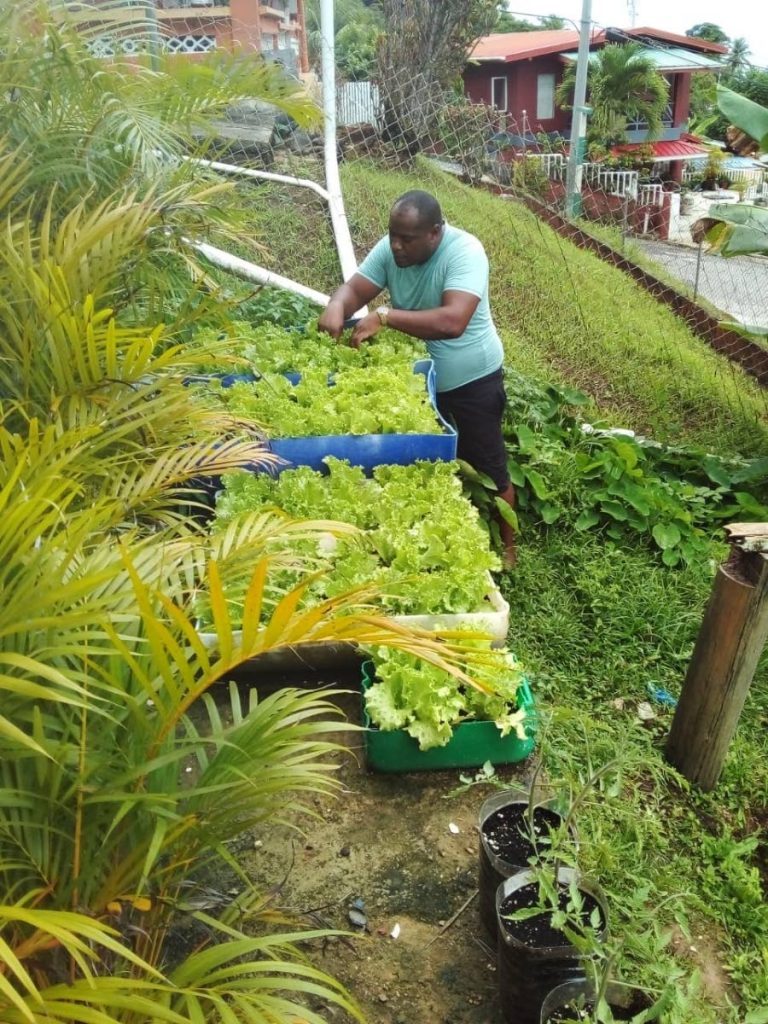Kind Foundation helps communities grow basic foods

Food security and sustainability have been the talk for many governments and organisations for many years, but with the onset of the covid19 pandemic, it has become evident that more work must be done to address the issue.
The global impacts of covid19 restrictions on imports, the ability to work and other logistics have seen increases in corn, wheat, soy prices. Climate change and demand-and-supply surges have all also contributed to rising food prices.
There is no doubt that what you once considered basic and regular monthly goods at the supermarkets and markets are much more expensive today than a couple of months ago.
In light of this the Kids in Need of Direction (Kind) Foundation has embarked on its Plant What You Eat programme which provides families with the skills and knowledge to grow basic foods.
Kind’s founder Karina Scott told Business Day that the programme came about as part of its ongoing covid19 relief efforts to provide aid for affected people.
She said conversations with people receiving aid showed the foundation should create a programme to help people help themselves.
The ongoing programme is supported by the Ministry of Agriculture, Land and Fisheries, United Way, the 4H Club, breadfruit trees.com and the Inter-American Institute for Cooperation on Agriculture, and has been carried out in La Fillette, Blanchisseuse, Morvant, Beetham, Sea Lots, Aranguez, Laventille, Cascade and St Ann’s.
Scott said, “We did training sessions at the community centres which included how to germinate seeds, how to treat with heavy rains,
“We provide seeds and seedlings such as tomato, blackeyed peas, corn, pumpkin, cucumber, sweet pepper, pimento, cantaloupe, kale, eggplant, poi, spinach and ochro.”
She added that covid19 has affected the number of people who could be trained at a time and the types of training, but there has been interest in the programme.
Scott said the communities were engaging, and were keen to learn about the different techniques to grow their own food in whatever space was available to them.
“Videos, literature, demonstrations and fully interactive sessions were held to guide the participants. Sprouting is a big thing and rather than throwing seeds away, it can be reused to create new plants.
“We also share information on composting, which is good for areas with terrible soil conditions. We are also teaching recycling so that people can reuse containers such as milk cartons and plastics to start their gardening process.”
Scott added that the programme teaches about not just the planting process but also the additional personal benefits it brings, like managing stress, promoting good mental health, the connection with nature, and as a leadership tool.
“It is great for parents to connect with children. It is a great feeling to show you child how to plant and gives a sense of control of what is being put into the human body.
“It is the responsibility of each family to get each member of their family involved and to bring another family in the programme foster community building.”
Scott said the Kind Foundation planned to take the programme into schools because agriculture was a critical life skill that was needed.
Participant Keron Joseph, who lives in Blanchisseuse, said involvement in his community revived interests and ambitions for agriculture.
He said he always enjoyed gardening and with the new information and knowledge he now has, restarting his gardening project to produce organic items seems like something that can be achieved.
“I always had plans even before getting involved with Kind. I had plans in doing agriculture on a wide scale basis and the opportunity presented itself.
“The new techniques without the use of chemicals were a learning curve, something I struggled with. I started off in my backyard and the crops are coming along really nicely and it has given me more inspiration to go ahead with it.”
Joseph said with almost 17 acres of land at his disposal, his intention was to grow long-term crops such as avocado, coconut, lemon, lime, orange and grapefruit.
“I'm hoping to get my products into supermarkets, because a lot of these products we consume are imported. The long-term goal is to also be able to export as well.”
Joseph said he also appreciated the programme because it gave him a chance to bond more with his mother and daughter, whom he lives with.
The simple discussions in the garden, he said, made him feel closer to them: “Being at home in the pandemic has given us more time to spend together and an activity we all enjoy doing.
“We are reaping the benefits of it, because I have been able to make meals from ingredients grown in my backyard garden.”
This is the first cycle of the programme, which started in May and runs for three months, but was only able to target 40 out of the 80 families it had originally catered for because of the pandemic. The second cycle, carded to begin in July, will take participants through other steps of the gardening process such as plant care while bearing produce.


Comments
"Kind Foundation helps communities grow basic foods"